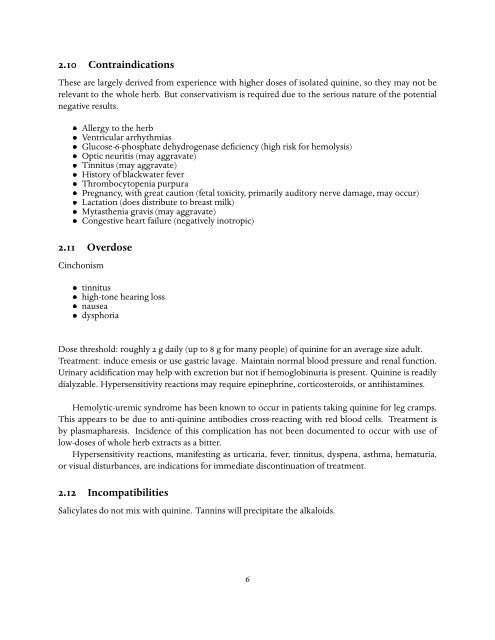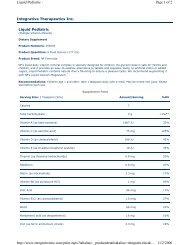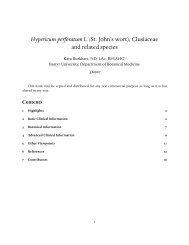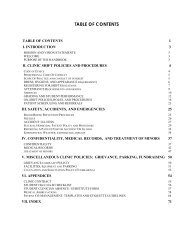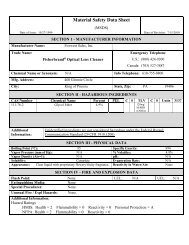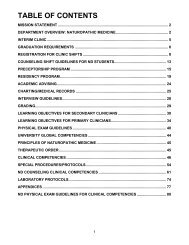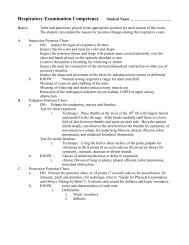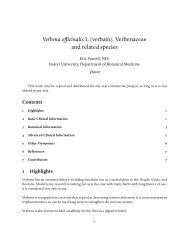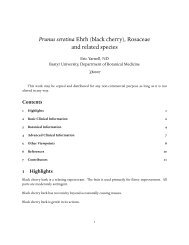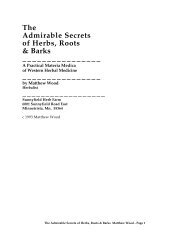Cinchona officinalis L (Peruvian bark), Rubiaceae ... - AaronsWorld
Cinchona officinalis L (Peruvian bark), Rubiaceae ... - AaronsWorld
Cinchona officinalis L (Peruvian bark), Rubiaceae ... - AaronsWorld
You also want an ePaper? Increase the reach of your titles
YUMPU automatically turns print PDFs into web optimized ePapers that Google loves.
2.10 Contraindications<br />
These are largely derived from experience with higher doses of isolated quinine, so they may not be<br />
relevant to the whole herb. But conservativism is required due to the serious nature of the potential<br />
negative results.<br />
¯ Allergy to the herb<br />
¯ Ventricular arrhythmias<br />
¯ Glucose-6-phosphate dehydrogenase deficiency (high risk for hemolysis)<br />
¯ Optic neuritis (may aggravate)<br />
¯ Tinnitus (may aggravate)<br />
¯ History of blackwater fever<br />
¯ Thrombocytopenia purpura<br />
¯ Pregnancy, with great caution (fetal toxicity, primarily auditory nerve damage, may occur)<br />
¯ Lactation (does distribute to breast milk)<br />
¯ Mytasthenia gravis (may aggravate)<br />
¯ Congestive heart failure (negatively inotropic)<br />
2.11 Overdose<br />
Cinchonism<br />
¯ tinnitus<br />
¯ high-tone hearing loss<br />
¯ nausea<br />
¯ dysphoria<br />
Dose threshold: roughly 2 g daily (up to 8 g for many people) of quinine for an average size adult.<br />
Treatment: induce emesis or use gastric lavage. Maintain normal blood pressure and renal function.<br />
Urinary acidification may help with excretion but not if hemoglobinuria is present. Quinine is readily<br />
dialyzable. Hypersensitivity reactions may require epinephrine, corticosteroids, or antihistamines.<br />
Hemolytic-uremic syndrome has been known to occur in patients taking quinine for leg cramps.<br />
This appears to be due to anti-quinine antibodies cross-reacting with red blood cells. Treatment is<br />
by plasmapharesis. Incidence of this complication has not been documented to occur with use of<br />
low-doses of whole herb extracts as a bitter.<br />
Hypersensitivity reactions, manifesting as urticaria, fever, tinnitus, dyspena, asthma, hematuria,<br />
or visual disturbances, are indications for immediate discontinuation of treatment.<br />
2.12 Incompatibilities<br />
Salicylates do not mix with quinine. Tannins will precipitate the alkaloids.<br />
6


